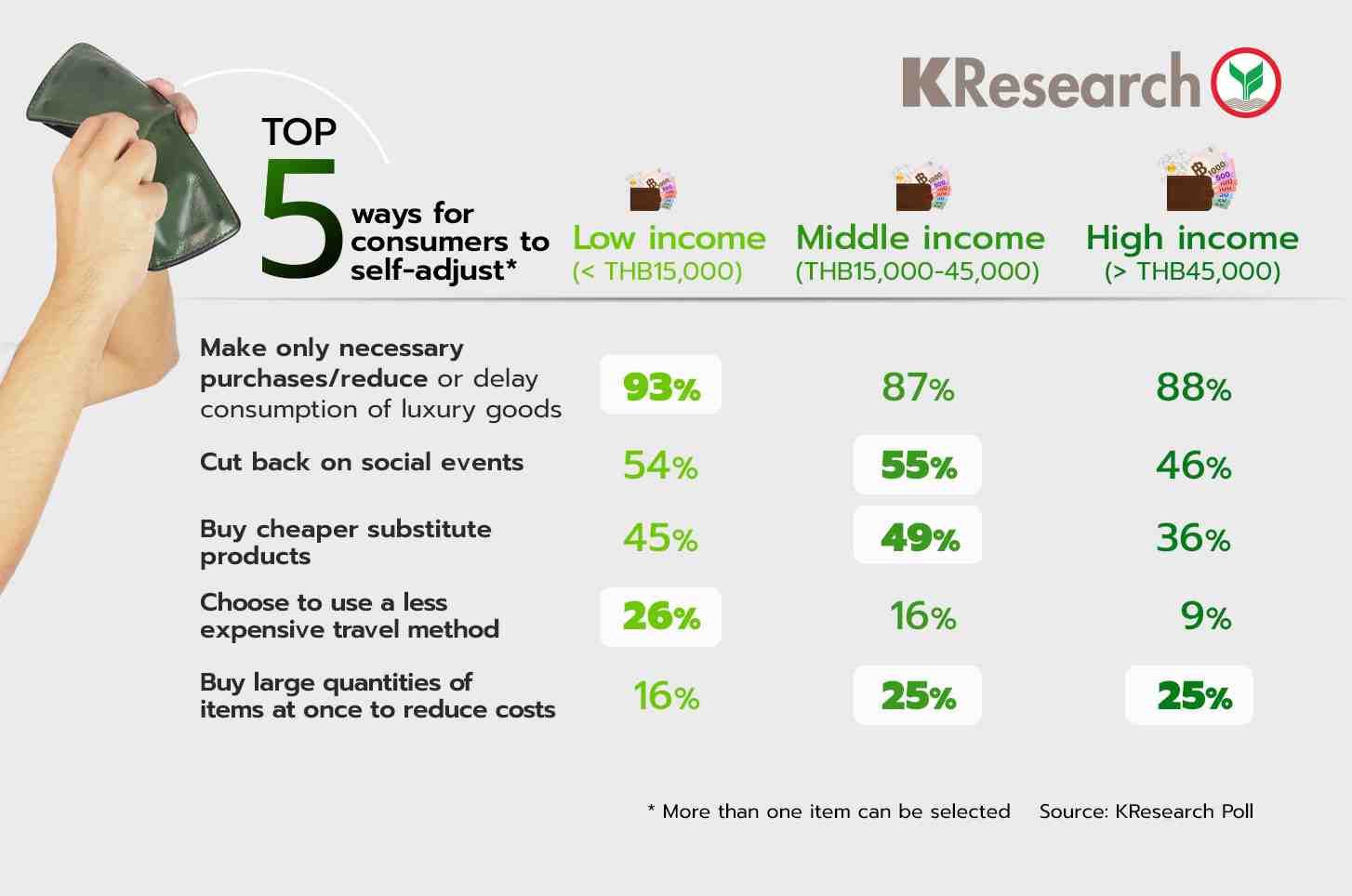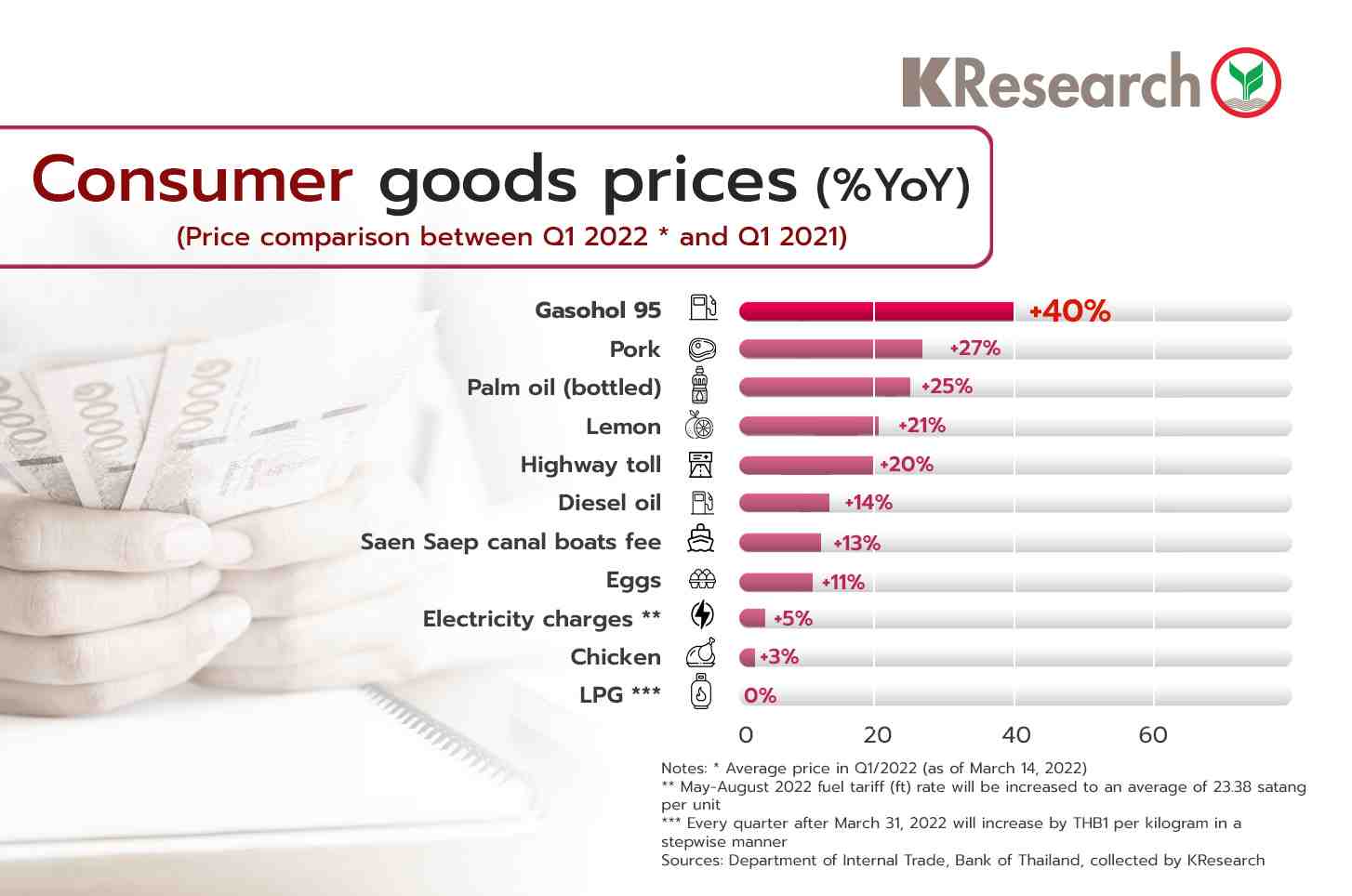

The Russian-Ukrainian conflict has caused the Thai economy, which is about to start recovering, to stagnate. Although Russia and Ukraine are not Thailand’s major trading partners, Russia is the world’s largest producer of oil and natural gas, and both Russia and Ukraine are the world’s leading exporters of wheat. The conflict has led to higher commodity prices in the global market, especially crude oil, metal ores, various raw materials, fertilizers, and grains that are the main raw materials for food and feed production, resulting in higher production costs for many industries in Thailand and some businesses having to raise product prices. The above situation pushed up the inflation rate in February, when the consumer price index reached a 13-year high of 5.23%, directly affecting consumers.
Meanwhile, household income in Thailand remains weak. The survey results show that 33.8% of the surveyed households cannot make ends meet, while about 67.5% of the households have no savings. In response, most consumers have changed their consumption behavior, choosing only necessary consumption expenditures, reducing or postponing luxury consumption, and reducing or postponing social events in favor of relatively low-priced alternatives. Among them, high-income consumer groups have more flexibility to adjust than low-income consumer groups, while low-income groups will then switch to much cheaper modes of transportation than other groups. For this reason, if public transport fares are raised, low-income groups will be affected. The government has recently introduced measures to reduce the cost of living for consumers, such as the fourth phase of the “Half-half Co-payment’' consumption stimulus and the latest ten cost-of-living reduction measures approved by the cabinet, which will help reduce electricity bills, freeze diesel oil prices, reduce the social welfare contribution rate, etc.
Another group of businesses that will be affected by the rising production costs (including raw material prices and transportation costs) due to rising prices of various commodities will be SMEs, especially those in industries such as food and beverage, construction and restaurants, stemming from the fact that most SMEs still have less flexibility in their ability to manage costs and obtain funds, when compared to large enterprises, as well as the flexibility to adjust prices. For this reason, SMEs also need to adjust their strategies in the short-term, such as developing affordable alternative brand products, reducing packaging capacity of products rather than raising prices. In the long run, SMEs should learn and apply various technologies to help improve the management of production costs and inventory efficiency.
Scan QR Code

Annotation
This research paper is published for general public. It is made up of various sources. Trustworthy, but the company can not authenticate. reliability The information may be changed at any time without prior notice. Data users need to be careful about the use of information. The Company will not be liable to any user or person for any damages arising from such use. The information in this report does not constitute an offer. Or advice on business decisions Anyhow.